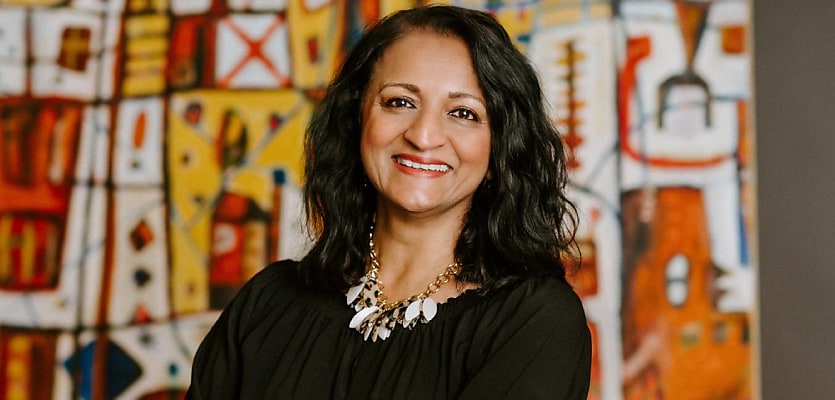It is Domestic and Family Violence Prevention Month and last weekend, a wave of rallies swept across the country, drawing over 100,000 people demanding action on violence against women.
This surge in public outcry comes as one woman is now being murdered every four days.
The last significant rally I remember was 11 years ago, it was held in Brunswick and it was called “Reclaim the night”. Over 5,000 people attended to remember Jill Meagher who had been murdered walking home. Many women at the time were more angry than scared. At the time, one woman a week was being murdered.
Fast forward 11 years and today we have a woman being murdered every four days. Despite all the work that has been done since we lost Jill Meagher, the issue of violence against women isn’t getting any better.
Today, most of my conversations with women are about fear and safety; not just for themselves, but for their daughters as well. We can’t run, walk, shop, work, be in our homes without considering the question, “How safe am I?” It is a mental load that is exhausting.
Sadly it has taken a horrific tragedy at Bondi and the subsequent murders of more women for this issue to be labelled a national crisis and for a national cabinet meeting to be held where the only topic for discussion was violence against women.
Why has it taken so long for the murder of women to become a national crisis? Have these previous deaths not been shocking enough?
Many of these women have been killed by someone they know, they have been stalked and attacked. Many put in place apprehended violence orders (AVOs) that have been broken, called the police multiple times, and the system has continued to fail them.
You have to ask how a court registrar decides to give a $5,000 bail to an individual who had sexually assaulted the victim previously, and two weeks after this hearing he murders her.
Suicides triggered by domestic violence isn’t reflected in the statistics. Victoria Police is lobbying the State Coroner to reclassify three suicides as family violence deaths. These women suffered trauma, felt so unsafe that they chose to kill themselves rather than be killed.
Children are not reflected in the statistics and currently, on average, we lose one child a month.
The federal government announced an investment of $925 million over five years which includes providing financial support for women. There were a number of other measures also announced. However, what I was hoping to see was the commitment to overhaul our legal system. Considerations for no bail for domestic violence cases, severe sentencing for breaches of intervention orders or attacks against women, GPS trackers on those who are on AVOs and present a high risk. There needs to be more funding for organisations that help women and children in high-risk situations, and longer-term reforms like social housing need to be on every state government’s agenda.
The media also has a vital role to play. Every death should be reported as vigorously as a terrorist attack, raising awareness and demanding accountability.
We have to remember that whether it is a man being murdered or a woman, the most likely perpetrator will be a man. If we can reduce the number of women being murdered, we will also reduce the number of men being murdered.
So what now?
The fact is this isn’t a woman’s problem; it’s all our problem. It impacts our culture, our society, and how men see their roles within it.
We have now reached a point in time when we need men, good men to help us make a change. Women can’t do it on their own.
The first step is listening. Ask your wives, mothers and daughters how they feel about the issue. Are they scared? What steps to do they take on a daily basis to keep themselves safe?
As leaders we need to ensure that all employees have a safe workplace, but chances are that looks different depending on whether you’re a man or a woman. What measures have you put in place in the business to ensure that women are safe when out at appointments? The duty of care is on you.
We need to ensure that we are creating a space for our men to practise and advocate for respectful relationships in the workplace.
Good men need to call out other men on their behaviours. Don’t make fun, put down or treat a woman as worthy of less respect than anyone else. Some of these seemingly innocent behaviours are entrenched in our society, so we need men to hold each other accountable.
I personally know many good men in this industry and in my personal circle. My ask of you is to speak up and speak out. Leaders in our industry can play a powerful and positive role.
Years ago, there was the men’s champion of change. Today we need a coalition of men who stand with women to ensure that they are safe.
Every four days a woman is killed in Australia, and it could happen to any of us regardless of age, race, marital status and location. Violence doesn’t discriminate.
Stand with us and raise your voice with ours so we can ensure that government, courts, judges, culture and society make the right choices. Let’s work together towards a time when all men agree that respectful relationships are a non-negotiable.
If you or someone you know needs help, please call 1800RESPECT, Lifeline 13 11 14, or if you are in immediate danger, please call 000.
This op-ed is the personal view and opinion of Sadhana Smiles.









You are not authorised to post comments.
Comments will undergo moderation before they get published.